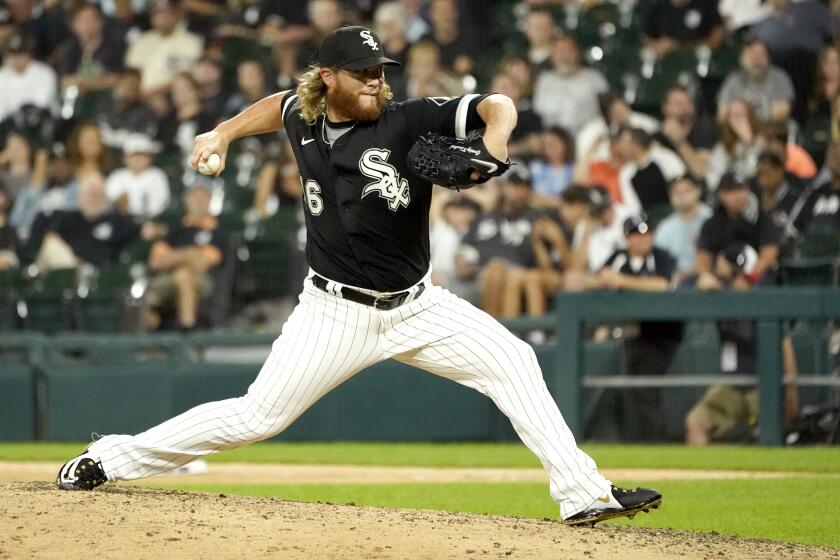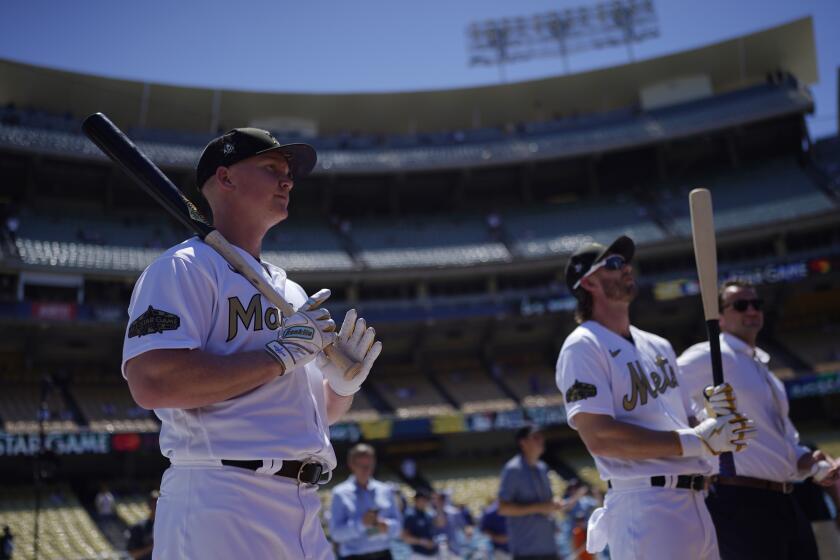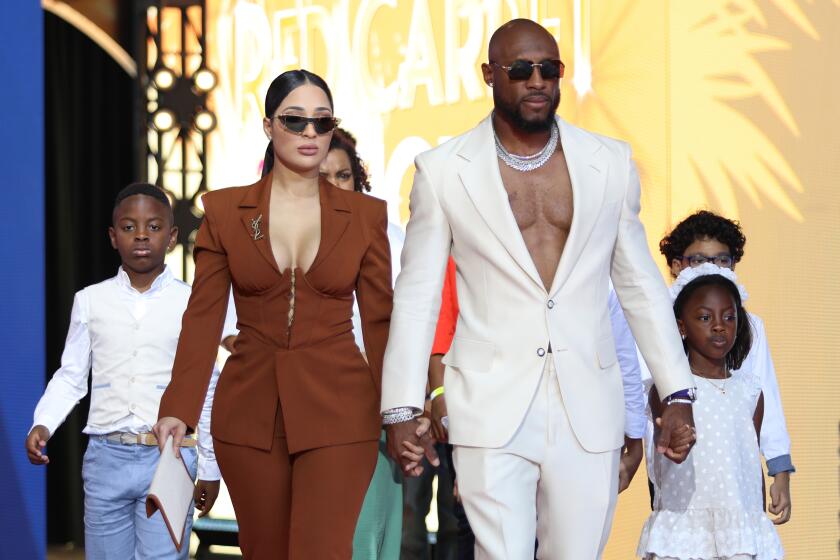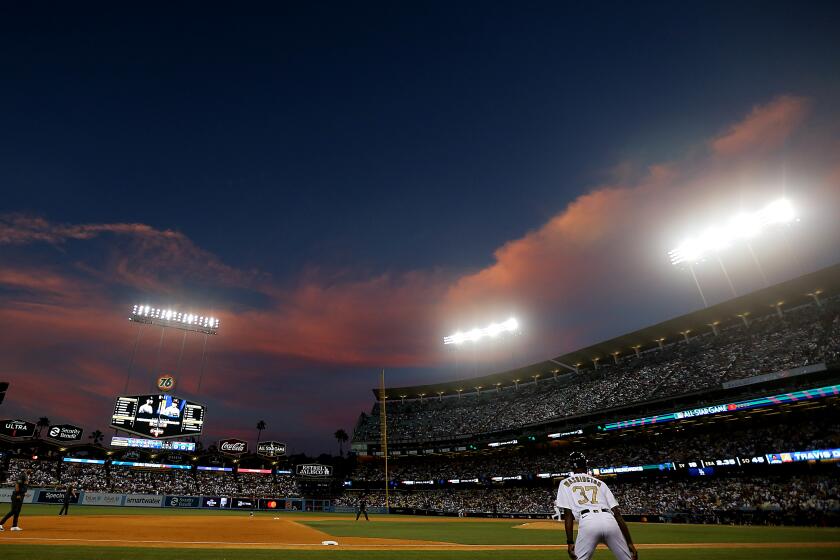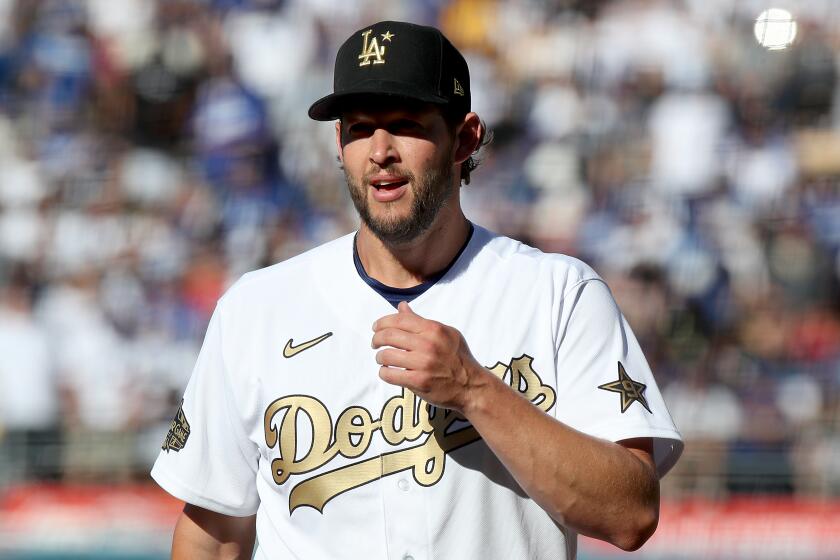After 42 years and a COVID delay, Dodger Stadium readies for All-Star moment
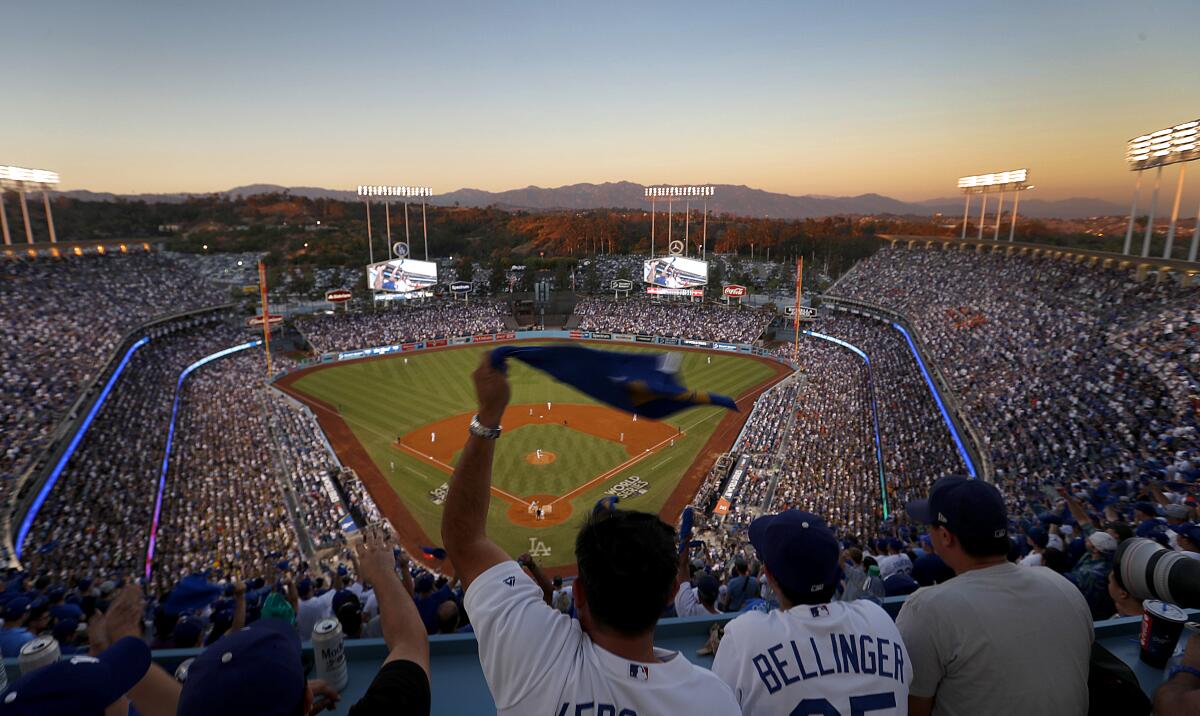
- Share via
Chub Feeney stood before the team for his annual rah-rah speech in the home clubhouse at Dodger Stadium. It was July 1980. The National League All-Stars were about to defend their eight-game winning streak against their American League counterparts, and Feeney badly wanted to continue the trivial dominance.
Feeney was the National League’s president. Winning that game mattered to him and it mattered to players in the room back when the summer showcase was more than just a lighthearted, mic’d-up scrimmage.
“The pride took over,” Steve Garvey said.
Garvey was the National League’s starting first baseman and one of six Dodgers selected to the team that year. He was selected most valuable player in his first All-Star appearance in 1974. He appeared in 10 games over his career and went undefeated. But nothing compared to suiting up in Los Angeles in 1980.
In a blockbuster trade Friday, the Dodgers acquired closer Craig Kimbrel from the Chicago White Sox in exchange for outfielder AJ Pollock.
“To win the game in front of our crowd was extra special,” he said.
The 1980 All-Star game was the first held at Dodger Stadium and the second the Dodgers hosted since moving to Los Angeles in 1958. Ken Griffey Sr. was chosen the MVP. The first home run derby was still five years away. Interleague baseball was a distant nightmare for purists.
The ballpark was seemingly an ideal host. Perfect weather everyday. Celebrities everywhere. Consistent fan support in a huge market. But years, decades, generations passed and the game never returned.
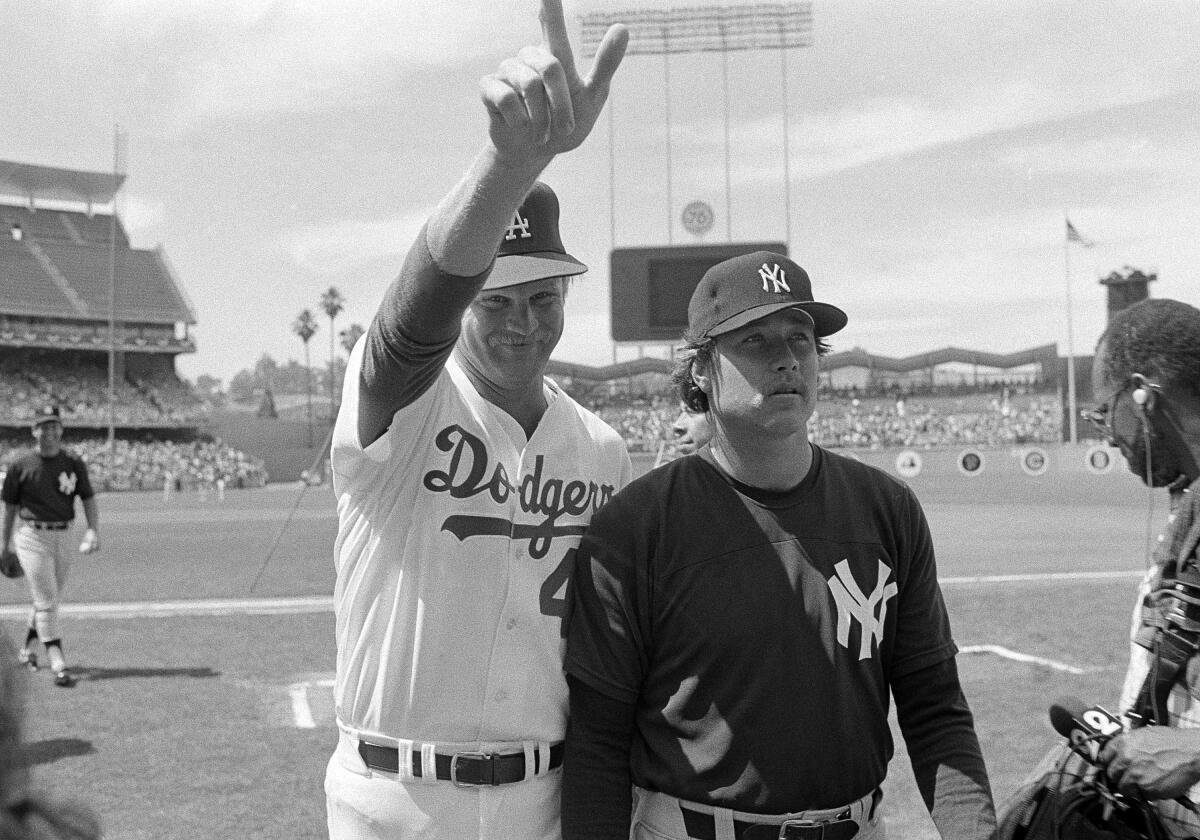
Finally, after 42 years and recent consternation, that will change in July when Dodger Stadium hosts the All-Star game and its growing list of events. The futures game and celebrity game will be held Saturday. The draft will happen at L.A. Live on Sunday. The home run derby will take center stage Monday before the game concludes the midseason festival on Tuesday, July 19.
“It’ll be pretty special,” Dodgers infielder and two-time All-Star Max Muncy said. “The All-Star game is almost, in a way, kind of what the city of L.A. is. It’s Hollywood, it’s lights. It’s just a big stage. That’s everything that L.A. does on a nightly basis.”
Ending the drought was one of Dodgers ownership’s priorities when Guggenheim bought the team a decade ago. The effort came to fruition in April 2018 when Major League Baseball awarded the 2020 game to the Dodgers.
MLB prioritizes teams that never hosted the game and new ballparks, but that formula has not always been consistent; nine teams were awarded the game twice between 1980 and 2018.
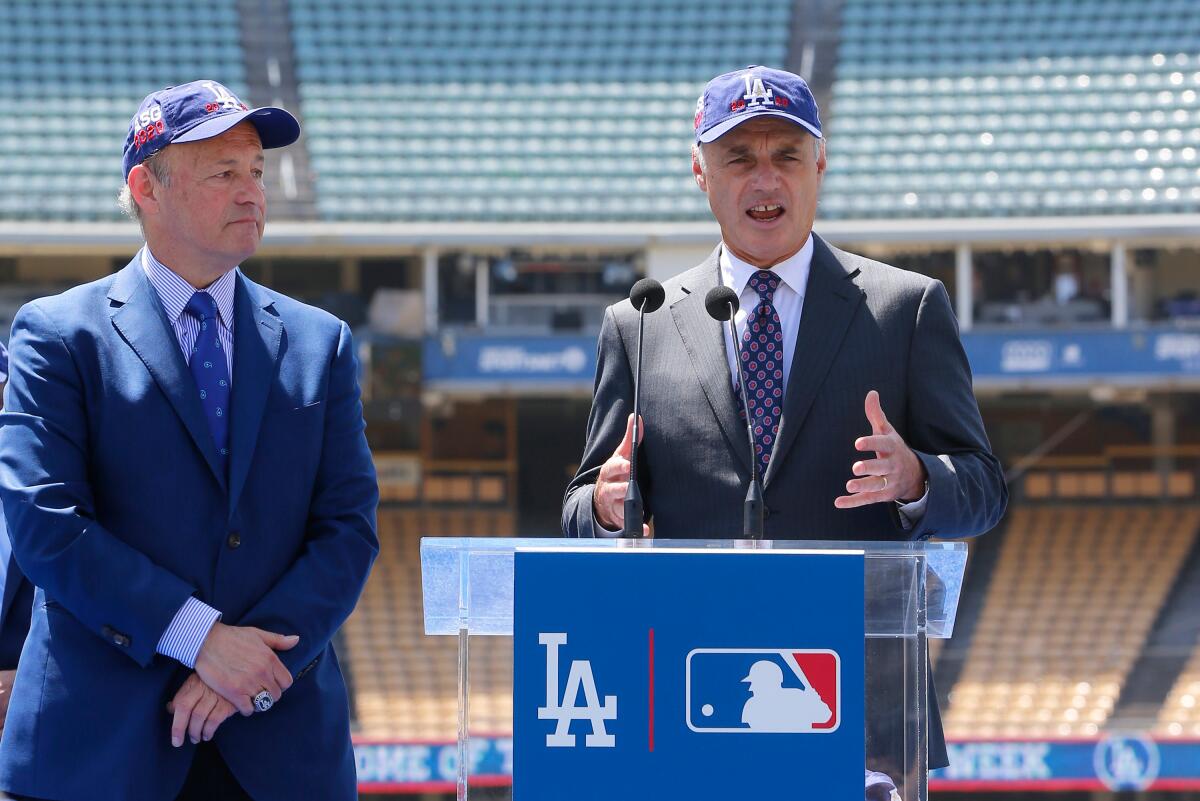
“It’s kind of unthinkable,” Dodgers president Stan Kasten said. “Because the other sports try to get here as much as they can, and baseball had not been here for that long a period of time. I can’t explain why it took so long.”
In 2019, the Dodgers, with the All-Star game in mind, unveiled plans for a $100-million renovation featuring a new center field plaza to be opened for 2020. The COVID-19 outbreak changed everything.
In March 2020, four months before Dodger Stadium was slated to host the exhibition, MLB suspended operations. Within a few weeks, Kasten said, it became clear the game wasn’t happening.
A mammoth sign with the All-Star game logo was delivered to Dodger Stadium that spring anyway. It would’ve been a waste but for one thing: The logo didn’t include the year. So, the Dodgers put up the sign in the empty ballpark anyway.
“It’ll just be a reminder that it’s coming,” Kasten said.
Four months later, MLB awarded the Dodgers this year’s game. The near future remained murky. The pandemic still was raging. Vaccines were not yet available. And a discouraging possible obstacle loomed within the sport: the expiration of the collective bargaining agreement.
MLB implemented a lockout on Dec. 1. The season, All-Star game included, was in danger. But the owners and union hammered out a deal to save it.
“You’re talking about the third-oldest stadium in MLB and all the history that’s been through there,” Dodgers third baseman and two-time All-Star Justin Turner said. “The fact that it’s been 40-something years since they had an All-Star game just seems crazy.”
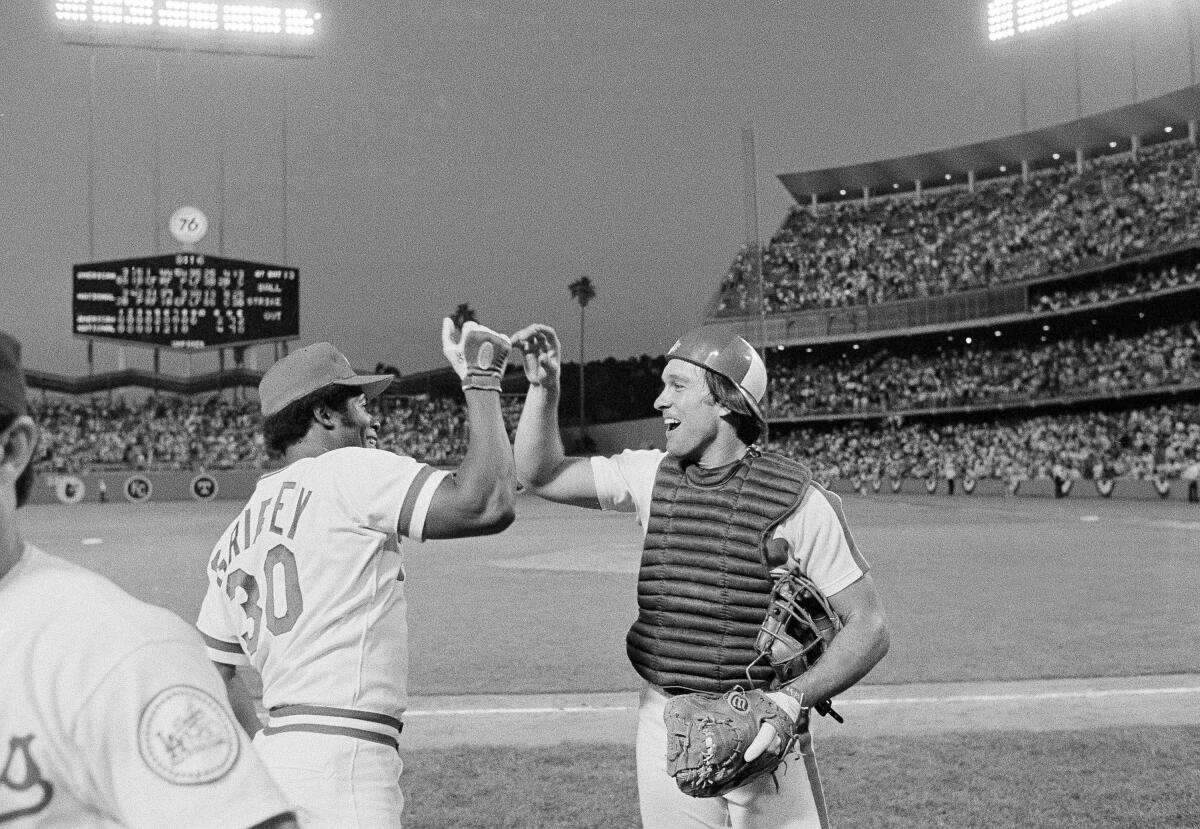
This time, Dodger Stadium will host its first home run derby. There won’t be a rousing pregame speech from the National League president because that position became obsolete at the turn of the century. The American League will have the eight-game winning streak to defend.
The game itself will feel different. It won’t feature the ferocity Garvey and the other players displayed in 1980. It will be a made-for-TV production with ads plastered everywhere and long commercial breaks. But the stars finally will glow in Los Angeles once again. All it took was 42 years.
More to Read
Are you a true-blue fan?
Get our Dodgers Dugout newsletter for insights, news and much more.
You may occasionally receive promotional content from the Los Angeles Times.

